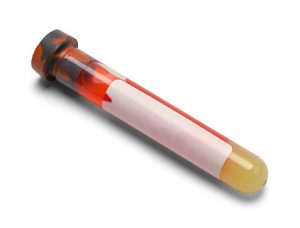Questioning Lab Results in a Houston DWI Defense
 Many defendants who are arrested for impaired driving undergo testing of their blood, breath, or urine in order to determine the level of drugs or alcohol in their system. Prosecutors use toxicology tests and lab reports to show a defendant was too impaired to drive. Defendants who know there are lab results indicating impairment may feel as if this evidence is sufficient for a prosecutor to meet the burden of proof, demonstrate guilt beyond a reasonable doubt, and secure a conviction.
Many defendants who are arrested for impaired driving undergo testing of their blood, breath, or urine in order to determine the level of drugs or alcohol in their system. Prosecutors use toxicology tests and lab reports to show a defendant was too impaired to drive. Defendants who know there are lab results indicating impairment may feel as if this evidence is sufficient for a prosecutor to meet the burden of proof, demonstrate guilt beyond a reasonable doubt, and secure a conviction.
The reality, however, is scientific testing is imperfect and it is often possible to mount a successful Texas DWI defense, even if there are lab results showing levels of drugs or alcohol above legal limits. Lab tests are not always accurate, and even the Department of Justice has expressed concerns about many of the crime labs throughout the country which perform various types of testing used in criminal cases.
Lab Results Can be Called Into Question as a DWI Defense
Labs throughout the country are asked to process all different kinds of information, as scientific evidence is important not just in DWI cases but also when serious crimes are committed. Many people believe these crime labs are subject to the strictest standards for accuracy and quality control because defendants’ futures hang in the balance.
According to a recent PBS report, however, these crime labs are subject to very little oversight, mistakes are common, and many cases have had to be re-tried or verdicts have been thrown out as a result of problems with lab testing.
The Department of Justice has put forth a plan to try to fix myriad problems at crime labs. DOJ says labs that work with the Department of Justice will need to be accredited by 2020. This “solution” however, does little to actually fix problems with labs throughout the United States. First, the plan provides an out because it only requires an accredited labs be used when practicable- so an argument can be made to use a non-accredited lab if there isn’t an accredited one available right away to conduct testing. Second, most crimes- like DWI- are not prosecuted by the Department of Justice but instead are prosecuted on the state level, so this requirement won’t even apply.
The DOJ’s plan is also woefully inadequate because accreditation is not necessarily a difficult process. Most accreditors actually let labs determine which cases to provide for review during the accreditation process. Of course, labs are going to submit only cases for review where they are sure they have followed quality control protocols. Even with this lax standard, 17 percent of public crime labs aren’t accredited and accreditation rates at private labs are likely even lower. One of the major accrediting agencies has accredited 356 publicly funded labs but just 26 privately funded labs.
Because there are such serious issues with labs throughout the country, DWI defendants shouldn’t necessarily assume any lab testing done in their impaired driving case is going to be accurate enough that it cannot be challenged with a good DWI defense.






